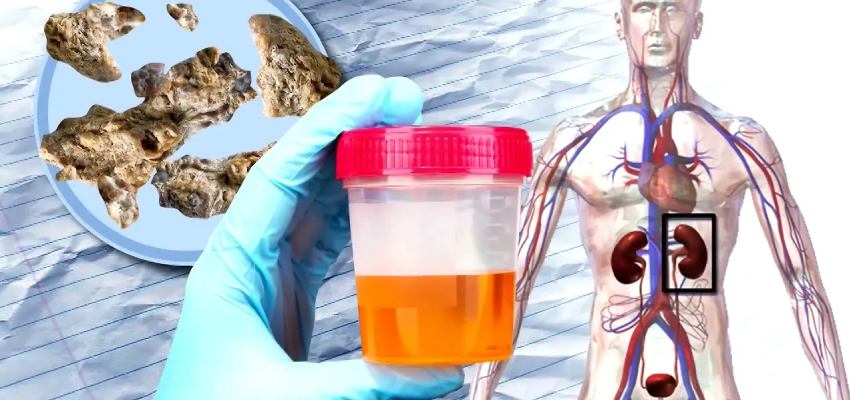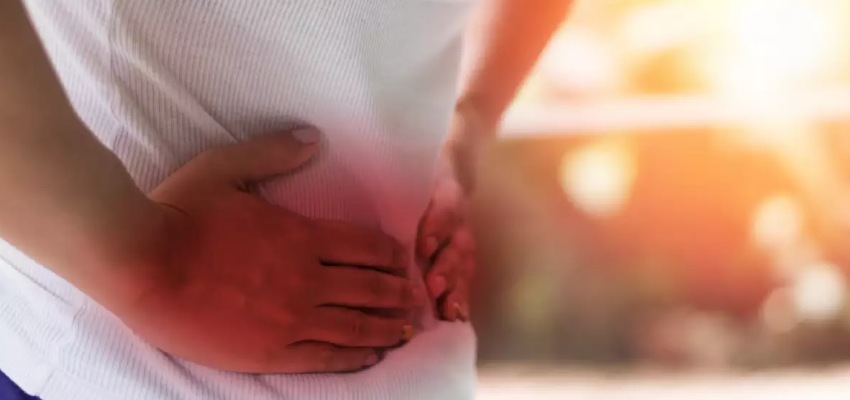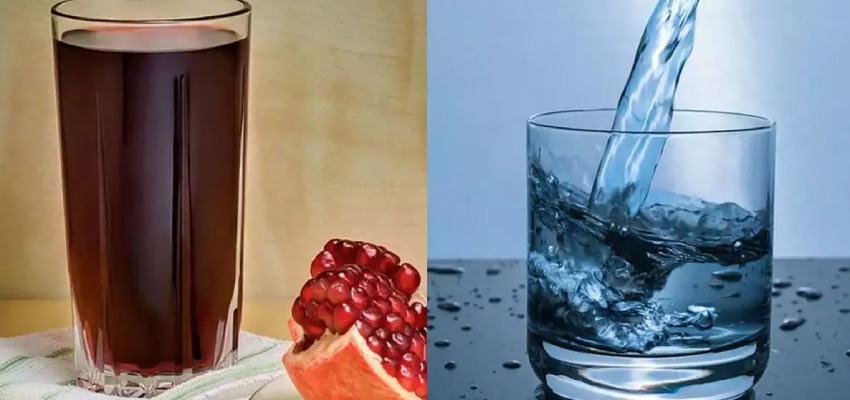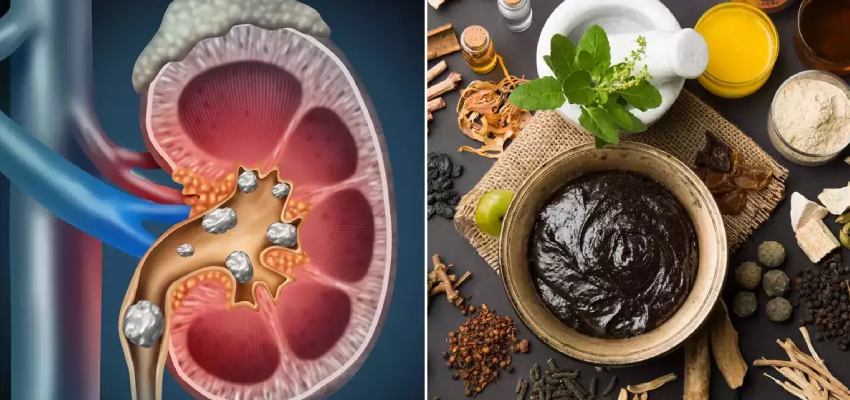Renal calculi, more often known as kidney stones, are a common source of acute pain and suffering related to the urinary tract.
Symptoms might include the formation of tiny, hard deposits in the kidneys that then move along the urinary system.
This blog will examine kidney stones, including their origins, symptoms, and treatment options (both Western and Ayurveda).
Causes of Kidney Stones
When certain minerals and salts build up in the urine and solidify, solid particles called kidney stones can form. Kidney stones can be caused by a number of different things:

- Oxalate-rich foods, such as spinach, chocolate, almonds, and tea, can raise the chance of developing kidney stones when consumed in large quantities. Another contributing factor is a diet high in salt and animal protein.
- Low fluid intake causes urine volume to decrease, which in turn increases the risk of mineral crystallisation in the kidneys (dehydration).
- The likelihood of kidney stones is higher in people with a family history of the condition.
- Hyperparathyroidism, urinary tract infections, and inflammatory bowel disease are just a few examples of medical diseases that might raise the chance of kidney stone development.
- Increased risk of kidney stones is associated with obesity because excess body fat interferes with metabolism.
You can also look at Viral Fever Symptoms & Best Antibiotic.
Symptoms of Kidney Stones
It is very uncommon for kidney stones to pass through the urine canal undetected for quite some time. When this occurs, it may be accompanied by the following symptoms:

Kidney stones are characterised by excruciating pain, which may originate in the back or side and spread to the lower abdomen and groyne. Renal colic is a painful condition that frequently causes nausea and vomiting.
Hematuria, or the presence of blood in the urine, might be a sign that kidney stones are passing through the urinary tract. Urine colour can range from pink to red to brown.
Increased Urination Frequency: Kidney stones can increase your need to urinate, which can be an unpleasant procedure.
Urine may include minerals and waste materials, which can give it a hazy appearance and an unpleasant odour.
Kidney stones are a common cause of urinary tract infections, which manifest with high body temperature, chills, and pain or difficulty passing urine.
Get information about – Fatty Liver Symptoms, Risks, and Treatment
Home Remedies for Kidney Stones
Symptom management and aiding the body’s natural process of passing small kidney stones are possible with a few home treatments, while medical intervention is usually essential for bigger or more persistent stones.

To avoid and effectively treat kidney stones, it is essential to drink plenty of water regularly. The chance of developing kidney stones can be mitigated by drinking plenty of water, which dilutes urine.
Citric acid, found in lemons, can aid in the dissolution of kidney stones and prevent their formation. It’s possible that drinking a mixture of lemon juice and water daily may be helpful.
Reducing salt intake and reducing oxalate-rich foods will help you avoid developing kidney stones.
Dandelion root tea, nettle leaf tea, and horsetail tea are just a few of the herbal beverages shown to benefit kidney function and may even help pass smaller stones.
Putting a warm compress to the sore spot will help relax the muscles around it, which in turn helps alleviate some of the discomfort.
Here is Daily Water Requirements For The Human Body.
The kidney stones may be treated naturally and thoroughly with the help of Ayurveda, an ancient holistic treatment technique from India. This ancient practice has as its primary goal the promotion of health and the restoration of internal balance. Changes in food, herbs, detoxification treatments, and lifestyle habits make up the Ayurvedic approach to treating kidney stones.

- In order to avoid the buildup of toxins that might lead to kidney stone development, Ayurveda recommends adhering to a diet that is balanced and suited to the individual’s constitution (dosha).
- Drinking warm fluids, herbal teas, and mixtures is highly recommended in Ayurveda for maintaining healthy kidney function and urine production.
- Ayurveda medicines are crucial in treating kidney stones. The anti-inflammatory and toxin-removing effects of Punarnava’s diuretic qualities are well-documented.
- Gokshura helps maintain a healthy urinary system and eliminates the risk of developing stones. Another useful plant, varun, aids in the dissolution and elimination of stones.
- Panchakarma refers to a series of cleaning and rejuvenating procedures that form the backbone of Ayurveda medicine.
- Therapeutically, the kidneys benefit from the elimination of extra toxins through the practice of virechana. Herbal enemas, or basti, are used to restore internal harmony and promote healthy kidney function.
- Ayurveda recommends yoga and meditation as means to alleviate stress and improve health.
- Some yoga poses (asanas) have been shown to improve kidney function and circulation, while meditation is useful for relieving stress, an important contributor to the development of kidney stones.
- The pain and suffering caused by kidney stones can be alleviated by massaging the lower back and abdomen using Ayurvedic oils, such as castor oil or sesame oil. In addition to easing tension, these massages boost circulation to the kidneys.
Symptom relief is important, but Ayurvedic treatment for kidney stones also aims to correct the underlying imbalances that lead to the condition in the first place.
It takes a comprehensive approach, helping the body recover itself, which is good for the kidneys and your health in general.
Nevertheless, before beginning any treatment programme, it is crucial to speak with an experienced Ayurveda practitioner to verify that the plan is personalised to your unique needs and health circumstances.
Read about – Pain Relief Gel for Muscle
Conclusion
Understanding the origins, symptoms, and treatment options for kidney stones can help patients take charge of their health and alleviate the agony associated with this illness.
In addition to traditional medical therapies, a healthy lifestyle, enough hydration, and investigation of Ayurveda practises can complement medical interventions and contribute to overall kidney health, especially when dealing with bigger or more chronic stones.
Before making any major changes to your diet or treatment plan, it is essential to speak with a medical practitioner.
Consider reading –
- Butter Fruit Uncovering the Incredible Health Benefits
- Headache Relief Finding the Best Tablet
- Best Liver Tonic in India
- Best Vitamin C Serum in India